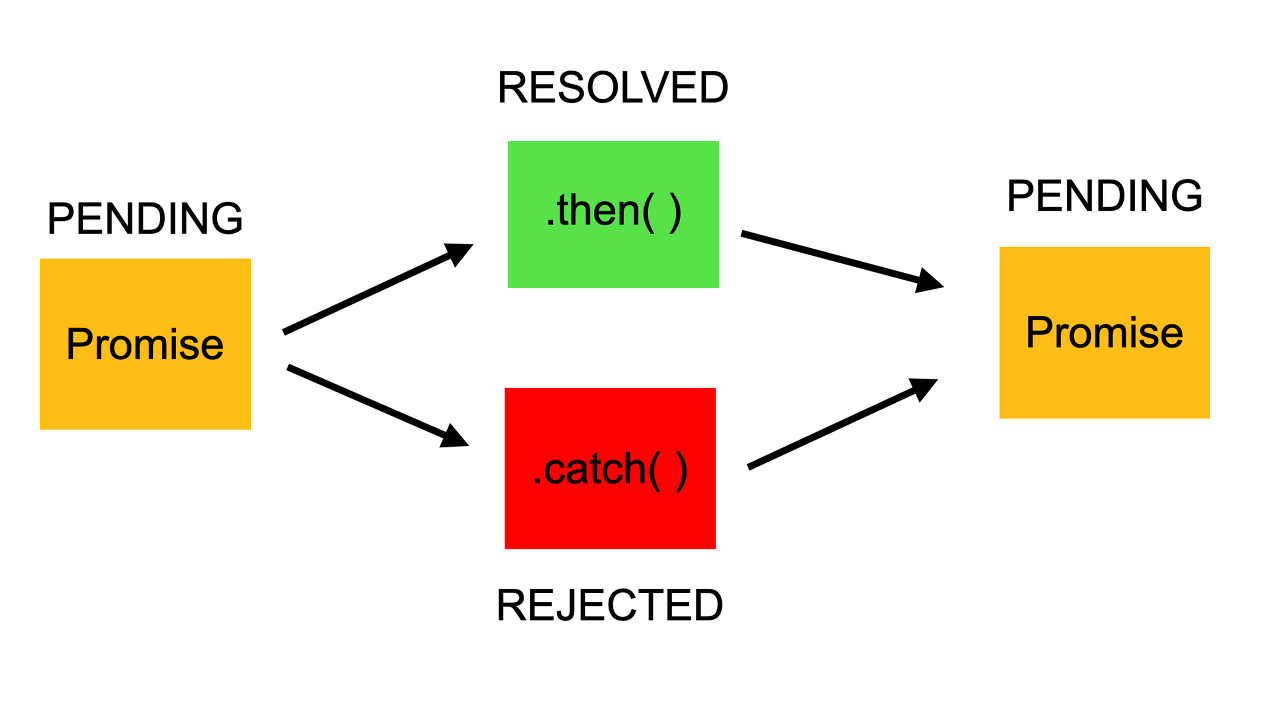Chapter
2023.03.03 - [개발/MongoDB] - MongoDB) 계정 만들고 db 생성하고 CRUD 해보기
2023.03.03 - [개발/Node.js] - Node.js) 설치부터 REST API 만들어보기
2023.03.04 - [개발/Node.js] - Node.js) 비동기 프로그래밍 (Asynchronous Programming) 공부해보기
2023.03.04 - [개발/Node.js] - Node.js) MongoDB 접속 후 DB 다루기
참고
해당 내용은 강의를 기반으로 작성하였습니다.
강의를 들으면 더욱 상세한 내용을 얻으실 수 있으니, 강의를 듣기를 권장합니다.
https://www.inflearn.com/course/%EB%AA%BD%EA%B3%A0%EB%94%94%EB%B9%84-%EA%B8%B0%EC%B4%88-%EC%8B%A4%EB%AC%B4/dashboard


한 사람이 하나의 일이 끝날 때 까지 계속 기다리는 것이 Blocking이고,
Non Blocking은 하나를 처리하고 또 다른 것을 처리하는 것을 Non-Blocking이라 한다.
Non-Blocking이라는 것을 하려면 필요한 것이 보통은 Queue가 필요하다.

주방장 : 데이터 베이스
웨이터 : node.js

Event Loop가 Thread Pool이 끝나는 것을 확인한다.

callback
callback.js
const addSum = (a, b, callback) => {
setTimeout(() => {
if (typeof a !== 'number' || typeof b !== 'number') return callback('a,b must be numbers');
callback(undefined, a + b)
}, 3000);
}
addSum(10, 20, (error, sum) => {
if (error) return console.log({ error });
console.log({ sum })
}
)
let callback = (error, sum) => {
if (error) return console.log({ error });
console.log({ sum })
}
addSum(10, 20, callback)
addSum(10, 'a', callback)
promise

Promise의 세가지 상태
- pending(대기): fulfilled(이행)도 rejected(거절)도 안된 초기 상태
- fulfilled(이행): 비동기 연산이 성공적으로 완료된 상태, 결과값을 반환한다.
- rejected(실패): 비동기 연산에 실패한 상태, 에러를 반환한다.
promise.js
const addSum = (a, b) => {
return new Promise((resolve, reject) => {
setTimeout(() => {
if (typeof a !== 'number' || typeof b !== 'number') {
reject('a,b must be numbers');
}
resolve(a + b)
}, 3000);
})
}
addSum(10, 20)
.then((sum) => console.log({ sum }))
.catch((error) => console.log({ error }))
addSum(10, "a")
.then((sum) => console.log({ sum }))
.catch((error) => console.log({ error }))
Chained Promises
nested 된 구조를 짜게 되면, 계속 가로 안에 가로로 들어가지만 점점 더 복잡해짐
callback.js 버전
addSum(10, 20, (error1, sum1) => {
if (error1) return console.log({ error1 });
console.log({ sum1 })
addSum(sum1, 15, (error2, sum2) => {
if (error2) return console.log({ error2 });
console.log({ sum2 })
})
})promise.js 버전
훨씬 간결해짐!
특히 에러가 나도 하나의 catch로 처리할 수 있음!
주요 비즈니스 로직은 promise를 많이 사용한다고 함.
then()과 catch() 메소드는 Promise 객체를 반환하므로 chaining 형태로 사용될 수 있다.

addSum(10, 20)
.then(sum1 => addSum(sum1, 15))
.then(sum2 => console.log({ sum2 }))
.catch((error) => console.log({ error }))
addSum(10, 20)
.then(sum1 => {
return addSum(sum1, 15)
})
.then(sum2 => console.log({ sum2 }))
.catch((error) => console.log({ error }))
addSum(10, 20)
.then(sum1 => {
console.log({ sum1 })
return addSum(sum1, 'sd')
})
.then(sum2 => console.log({ sum2 }))
.catch((error) => console.log({ error }))
addSum(10, 20)
.then(sum => addSum(sum, 1))
.then(sum => addSum(sum, 1))
.then(sum => addSum(sum, 1))
.then(sum => addSum(sum, 1))
.then(sum => addSum(sum, 1))
.then(sum => console.log({ sum }))
.catch((error) => console.log({ error }))
더 간결하게 하는 문법이 있다고 함.
중간 중간 값을 확인하려면 then 쪽이 복잡해짐.
하지만 async를 사용하면 더 간결하게 가능함.
try catch로 감싸서 에러 로그 처리
addSum(10, 10)
.then(sum1 => {
sum1_ = sum1
return addSum(sum1, 10)
})
.then(sum2 => {
sum2_ = sum2
console.log({ sum2 })
})
const totalSum = async () => {
try {
let sum = await addSum(10, 10)
let sum2 = await addSum(sum, 10)
console.log({ sum2 })
} catch (err) {
if (err) console.log({ err })
}
}
빨간색 영역 : non blocking
파란색 영역 : blocking
일반 동기 프로그래밍

비동기프로그래밍
노드가 겹치는 영역은 cpu를 놀지 않고 일을 시킨다.


상황에 따라 동기 비동기에 따라서 아래처럼 구성
유저는 일단 찾고, 유저가 있다면 한번에 insert 및 update를 진행시킴
이런식으로 시간을 절약할 수 있는 것이 장점이다.

Blocking
- 빨간색 부분이 노는 부분인데, Blocking이 되면 일을 못하게 된다.(많은 처리가 안됨)
- 다른 쪽에서 처리하게 한다. (child process) 같은 것을 만든다는지...
-

참조
https://interconnection.tistory.com/141
Blocking or Non-Blocking, Synchronous and Asynchronous
Overview When we develop application, we always think concepts called "Blocking, Non-blocking, Synchronous, Asynchronous". We usually think that "Blocking, non-blocking, Synchronous, Asynchronous" are the same. But, This perspective is wrong. It is unrelat
interconnection.tistory.com
github
https://github.com/sungreong/mongodb_and_nodejs_study.git
'개발 > Node.js' 카테고리의 다른 글
| Node.js) MongoDB 접속 후 DB 다루기 (2) | 2023.03.04 |
|---|---|
| Node.js) 설치부터 REST API 만들어보기 (0) | 2023.03.03 |